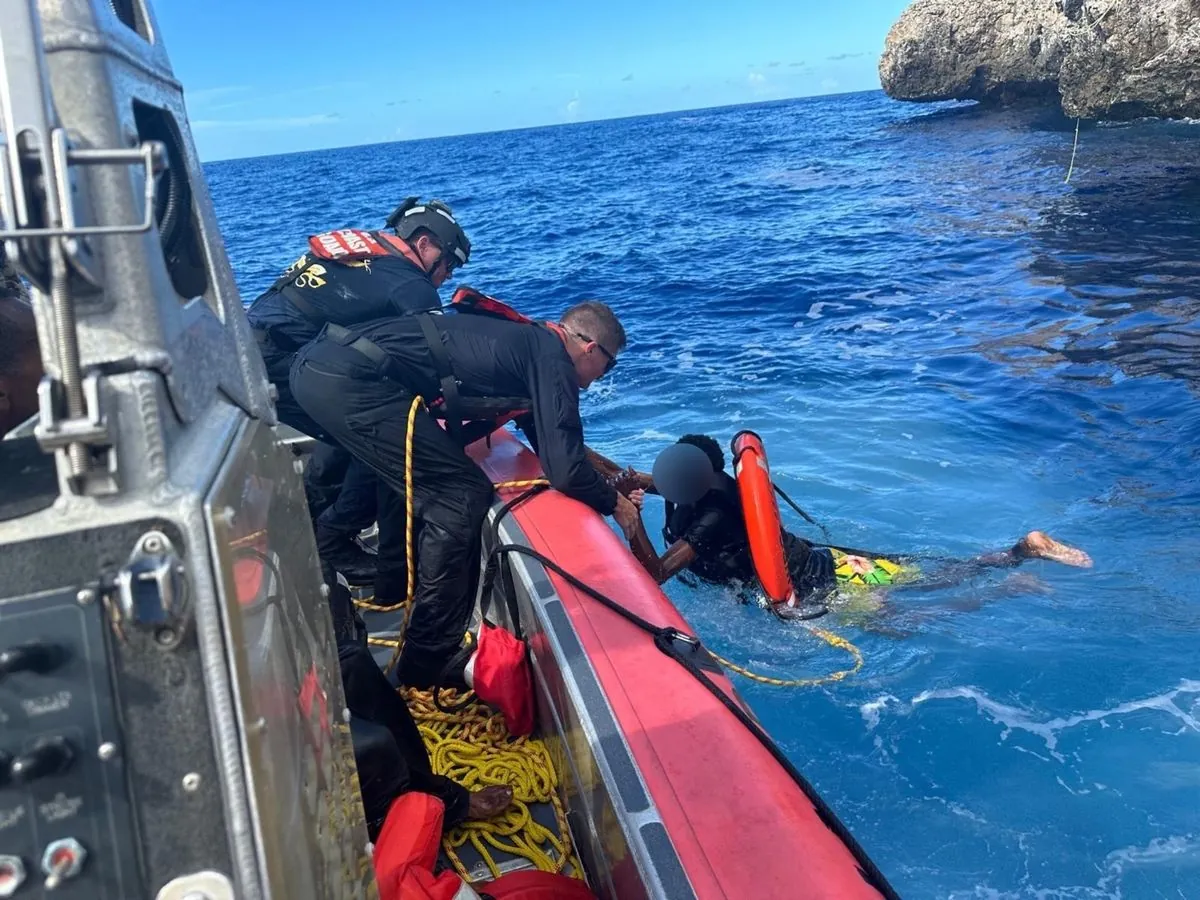U.S. federal agents recently intervened in a critical situation involving Haitian migrants off the coast of Puerto Rico. On October 4, 2024, authorities detained 64 individuals who had been abandoned on Mona Island, an uninhabited nature reserve located in the treacherous waters between Puerto Rico and the Dominican Republic.
The group, comprising 30 men, 28 women, and six minors, was discovered by park rangers who promptly alerted the U.S. Customs and Border Protection (CBP). This incident marks the third occurrence in less than a month where Haitian migrants have been stranded on this remote island.
Mona Island, known for its unique ecosystem and endangered species, has become an unintended waypoint for those fleeing Haiti. The island's location in the Mona Passage, an area notorious for its strong currents and dangerous conditions, underscores the risks these migrants are willing to take.
Two weeks prior, on September 20, authorities rescued 31 migrants from the same island. Even more recently, on September 15, an additional 14 individuals were found and brought to safety. These recurring incidents highlight the persistent issue of human smuggling across the Mona Passage and the desperate circumstances driving Haitians to undertake such perilous journeys.
The ongoing crisis in Haiti, the poorest country in the Western Hemisphere, continues to fuel this migration. Since the assassination of President Jovenel Moïse in 2021, Haiti has experienced escalating gang violence, deepening poverty, and increasing food insecurity. These factors have left more than 700,000 people homeless in recent years.
Haiti's struggles are compounded by environmental challenges, including deforestation and the increasing frequency of natural disasters due to climate change. The country's healthcare system remains severely underdeveloped, and its literacy rate is significantly lower than the regional average.
Despite its rich history as the first independent black republic, gaining freedom from France in 1804, Haiti has faced persistent political instability and economic hardship. The international community's efforts to provide effective aid have been largely unsuccessful, leaving many Haitians to rely on remittances from abroad as a crucial part of the economy.
As the situation in Haiti continues to deteriorate, neighboring countries like the Dominican Republic have implemented stricter immigration policies. This has led many Haitians to seek alternative routes, often turning to dangerous sea crossings in hopes of reaching U.S. territory.
The recurring rescues on Mona Island serve as a stark reminder of the humanitarian crisis unfolding in the region and the complex challenges faced by both migrants and authorities in addressing this ongoing issue.
